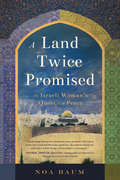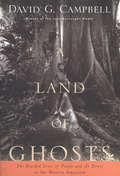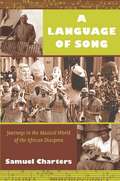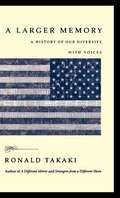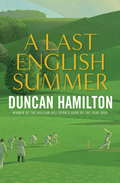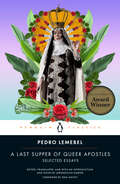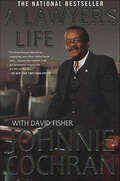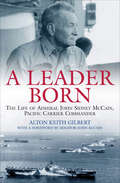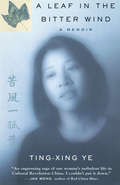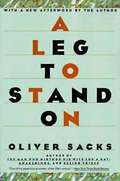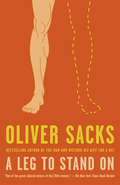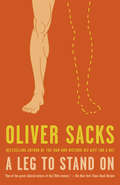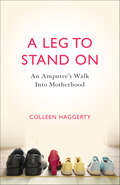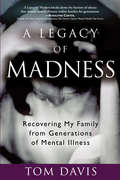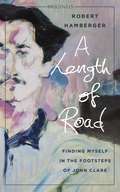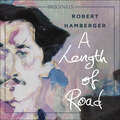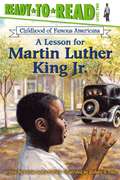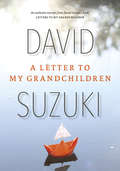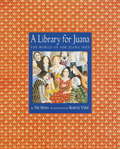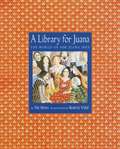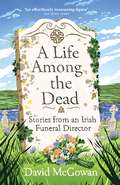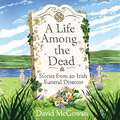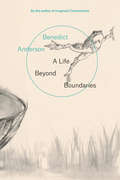- Table View
- List View
A Land Twice Promised: An Israeli Woman's Quest for Peace
by Noa BaumIsraeli storyteller Noa Baum grew up in Jerusalem in the shadow of the ancestral traumas of the holocaust and ongoing wars. Stories of the past and fear of annihilation in the wars of the ’60s, ’70s, and ’80s shaped her perceptions and identity. In America, she met a Palestinian woman who had grown up under Israeli Occupation, and as they shared memories of war years in Jerusalem, an unlikely friendship blossomed.A Land Twice Promised delves into the heart of one of the world’s most enduring and complex conflicts. Baum’s deeply personal memoir recounts her journey from girlhood in post-Holocaust Israel to her adult encounter with “the other.” With honesty, compassion, and humor, she captures the drama of a nation at war and her discovery of humanity in the enemy. Winner of the 2017 Anne Izard Storytellers' Choice Award, among others, this compelling memoir demonstrates the transformative power of art and challenges each reader to take the first step toward peace.
A Land of Ghosts: The Braided Lives of People and the Forest in Far Western Amazonia
by David G. CampbellThe biologist and award-winning author journeys deep inside the Amazon rainforest in this eloquent and insightful look at one of earth’s last wild places.For thirty years, biologist David G. Campbell has been exploring the lush wilderness, of the western Amazon, which contains more species than ever existed anywhere on our planet. In A Land of Ghosts, Campbell takes readers on his latest venture.In Cruzeiro do Sul, 2,800 miles from the mouth of the Amazon, Campbell collects three old friends: Arito, a caiman hunter turned paleontologist; Tarzan, a street urchin brought up in a bordello; and Pimentel, a master canoe pilot. Heading further into the rainforest, they survey every living woody plant they can find. The land is so rich that an area of less than fifty acres contains three times as many tree species as all of North America.Campbell knows the trees individually, and he knows the wildlife and the people as well: the recently arrived colonists with their failing farms; the Caboclos, masters of hunting, fishing, and survival; and the refugee Native Americans. These people live in a land whose original inhabitants were wiped out by centuries of disease, slavery, and genocide, taking their traditions and languages with them: a land of ghosts.
A Language of Song: Journeys in the Musical World of the African Diaspora
by Samuel ChartersIn A Language of Song, Samuel Charters--one of the pioneering collectors of African American music--writes of a trip to West Africa where he found "a gathering of cultures and a continuing history that lay behind the flood of musical expression [he] encountered everywhere . . . from Brazil to Cuba, to Trinidad, to New Orleans, to the Bahamas, to dance halls of west Louisiana and the great churches of Harlem. " In this book, Charters takes readers along to those and other places, including Jamaica and the Georgia Sea Islands, as he recounts experiences from a half-century spent following, documenting, recording, and writing about the Africa-influenced music of the United States, Brazil, and the Caribbean. Each of the book's fourteen chapters is a vivid rendering of a particular location that Charters visited. While music is always his focus, the book is filled with details about individuals, history, landscape, and culture. In first-person narratives, Charters relates voyages including a trip to the St. Louis home of the legendary ragtime composer Scott Joplin and the journey to West Africa, where he met a man who performed an hours-long song about the Europeans' first colonial conquests in Gambia. Throughout the book, Charters traces the persistence of African musical culture despite slavery, as well as the influence of slaves' songs on subsequent musical forms. In evocative prose, he relates a lifetime of travel and research, listening to brass bands in New Orleans; investigating the emergence of reggae, ska, and rock-steady music in Jamaica's dancehalls; and exploring the history of Afro-Cuban music through the life of the jazz musician Bebo Valds. A Language of Song is a unique expedition led by one of music's most observant and well-traveled explorers.
A Larger Memory: A History of Our Diversity, with Voices
by Ronald T. TakakiOne of the country's premier multi-culturalist scholars, Takaki eschews the angry, jargon-ridden ideological polemics that make up the usual artillery of the curriculum wars, opting instead to let America's diverse peoples speak for themselves in excerpts that are both informative and moving. While a few pieces are by familiar figures such as Frederick Douglass and Black Elk, most are by "ordinary" people -- African, Latino, Native American, Irish, Chinese, Jewish, Japanese, Polish, Mexican, Italian, Caribbean, Indian, Puerto Rican, Korean -- who recount their struggles and aspirations eloquently and with dignity.
A Last English Summer: by the author of 'The Great Romantic: cricket and the Golden Age of Neville Cardus'
by Duncan HamiltonFrom matches played on a village green to the high-church splendour of Lord's, in A Last English Summer, award-winning author Duncan Hamilton preserves the 2009 cricket season, a seminal, convulsive time in the sport's history. In prose by turns reflective and glorious, he remembers all we have lost whilst displaying an overwhelming love for the game that stands out on every page.
A Last Supper of Queer Apostles: Selected Essays
by Pedro LemebelA galvanizing look at life on the margins of society by a crowning figure of Latin America's queer counterculture who celebrated &“melodrama, kitsch, extravagance, and vulgarity of all kinds&” (Garth Greenwell) in playful, performative, linguistically inventive essays, now available in English for the first timeA Penguin Classic&“I speak from my difference,&” wrote Pedro Lemebel, an openly queer writer and artist living through Chile&’s AIDS epidemic and the collapse of the Pinochet dictatorship. In brilliantly innovative essays—known as crónicas—that combine memoir, reportage, fiction, history, and poetry, he brought visibility and dignity to sexual minorities, the poor, and the powerless. Touching on everything from Che Guevara to Elizabeth Taylor, from the aftermath of authoritarian rule to the daily lives of Chile&’s locas—a slur for trans women and effeminate gay men that he boldly reclaims—his writing infuses political urgency with playfulness, realism with absurdism, and resistance with camp, and his AIDS crónicas immortalize a generation of Chileans doubly &“disappeared&” by casting each loca, as she falls sick, in the starring role of her own private tragedy. This volume brings together the best of his work, introducing readers of English to the subversive genius of a literary activist and queer icon whose acrobatic explorations of the Santiago demimonde reverberate around the world.For more than seventy-five years, Penguin has been the leading publisher of classic literature in the English-speaking world. With more than 2,000 titles, Penguin Classics represents a global bookshelf of the best works throughout history and across genres and disciplines. Readers trust the series to provide authoritative texts enhanced by introductions and notes by distinguished scholars and contemporary authors, as well as up-to-date translations by award-winning translators.
A Lawyer's Life
by Johnnie Cochran David FisherBegins with the Simpson trial then reviews his previous career.
A Lawyer's Life
by Johnnie Cochran David FisherThe most famous lawyer in America talks about the law, his life, and how he has won.Johnnie Cochran has been a lawyer for almost forty years. In that time, he has taken on dozens of groundbreaking cases and emerged as a pivotal figure in race relations in America. Cochran gained international recognition as one of America's best - and most controversial lawyers - for leading 'the Dream Team' defense of accused killer O.J. Simpson in the Trial of the Century. Many people formed their perception of Cochran based on his work in that trial. But long before the Simpson trial and since then Johnnie Cochran has been a leader in the fight for justice for all Americans. This is his story.Cochran emerged from the trial as one of the nation's leading African-American spokespersons - and he has done most of his talking through the courtroom. Abner Louima. Amadou Diallo. The racially-profiled New Jersey Turnpike Four. Sean "P. Diddy" Combs. Patrick Dorismond. Cynthia Wiggins. These are the names that have dominated legal headlines - and Cochran was involved with each of them. No one who first encountered him during the Simpson trial can appreciate his impact on our world until they've read his whole story.Drawing on Cochran's most intriguing and difficult cases, A Lawyer's Life shows how he's fought his critics, won for his clients, and affected real change within the system. This is an intimate and compelling memoir of one lawyer's attempt to make us all truly equal in the eyes of the law.
A Leader Born: The Life of Admiral John Sidney McCain, Pacific Carrier Commander
by Alton Keith GilbertThis biography of one of World War II’s great military leaders is a “rich tribute to a staunch American naval hero” (WWII Quarterly).John S. “Slew” McCain was an old-school sailor. Wiry, profane, a cusser, and a gambler, he reminded more than one observer of Popeye. He was also a pioneer in the hard-hitting naval tactics that brought Imperial Japan to its knees.McCain graduated from Annapolis in 1906 and served aboard an armored cruiser in World War I. Perceiving the future of naval warfare, he earned his aviation wings in 1936, and by 1939, McCain was commander of the aircraft carrier USS Ranger. He was thus well-placed to play a leading role in America’s cut-and-thrust war with the Japanese across the broad expanses of the Pacific. In 1942, he was made commander of all land-based aircraft during the campaign for Guadalcanal. Though he took his share of blame for the disaster at Savo Island, he counterattacked with every means at his disposal, to the point of commandeering the planes of the crippled carriers Enterprise and Saratoga to reinforce US strength on Henderson Field.By the time the US returned to the Philippines, McCain was leading a fast carrier task force under William “Bull” Halsey. When asked what he thought about his carrier commander, Halsey replied, “Not much more than my right arm.” McCain’s carrier group would destroy thousands of enemy planes and hundreds of ships with aggressive swarming tactics. Four days after Japan officially surrendered, McCain died in his bed. His name has lived on, however, through his son, who became commander of US naval forces in the Pacific, and his grandson, John S. McCain III, carrier pilot, Vietnam POW, and United States Senator.Drawing upon a wealth of primary sources, including information provided by the McCain family, as well as an expert grasp of the titanic battles waged by the US armed forces in the Pacific, Alton Keith Gilbert has provided the fullest account of the Admiral John McCain’s life yet written.
A Leaf in the Bitter Wind
by Ting-Xing YeOne of the best ways to understand history is through eye-witness accounts. Ting-Xing Ye's riveting first book, A Leaf in the Bitter Wind, is a memoir of growing up in Maoist China. It was an astonishing coming of age through the turbulent years of the Cultural Revolution (1966 - 1974). In the wave of revolutionary fervour, peasants neglected their crops, exacerbating the widespread hunger. While Ting-Xing was a young girl in Shanghai, her father's rubber factory was expropriated by the state, and he was demoted to a labourer. A botched operation left him paralyzed from the waist down, and his health deteriorated rapidly since a capitalist's well-being was not a priority. He died soon after, and then Ting-Xing watched her mother's struggle with poverty end in stomach cancer. By the time she was thirteen, Ting-Xing Ye was an orphan, entrusted with her brothers and sisters to her Great-Aunt, and on welfare. Still, the Red Guards punished the children for being born into the capitalist class. Schools were being closed; suicide was rampant; factories were abandoned for ideology; distrust of friends and neighbours flourished. Ting-Xing was sent to work on a distant northern prison farm at sixteen, and survived six years of backbreaking labour and severe conditions. She was mentally tortured for weeks until she agreed to sign a false statement accusing friends of anti-state activities. Somehow finding the time to teach herself English, often by listening to the radio, she finally made it to Beijing University in 1974 as the Revolution was on the wane -- though the acquisition of knowledge was still frowned upon as a bourgeois desire and study was discouraged. Readers have been stunned and moved by this simply narrated personal account of a1984-style ideology-gone-mad, where any behaviour deemed to be bourgeois was persecuted with the ferocity and illogic of a witch trial, and where a change in politics could switch right to wrong in a moment. The story of both a nation and an individual, the book spans a heady 35 years of Ye's life in China, until her eventual defection to Canada in 1987 -- and the wonderful beginning of a romance with Canadian author William Bell. The book was published in 1997. The 1990s saw the publication of several memoirs by Chinese now settled in North America. Ye's was not the first, yet earned a distinguished place as one of the most powerful, and the only such memoir written from Canada. It is the inspiring story of a woman refusing to "drift with the stream" and fighting her way through an impossible, unjust system. This compelling, heart-wrenching story has been published in Germany, Japan, the US, UK and Australia, where it went straight to #1 on the bestseller list and has been reprinted several times; Dutch, French and Turkish editions will appear in 2001.
A Leg to Stand On
by Oliver SacksDr. Oliver Sacks's books "Awakenings, An Anthropologist on Mars" and the bestselling "The Man Who Mistook His Wife For a Hat" have been acclaimed for their extraordinary compassion in the treatment of patients affected with profound disorders. In "A Leg to Stand On", it is Sacks himself who is the patient: an encounter with a bull on a desolate mountain in Norway has left him with a severely damaged leg. But what should be a routine recuperation is actually the beginning of a strange medical journey when he finds that his leg uncannily no longer feels part of his body. Sacks's brilliant description of his crisis and eventual recovery is not only an illuminating examination of the experience of patienthood and the inner nature of illness and health but also a fascinating exploration of the physical basis of identity. Copyright © Libri GmbH. All rights reserved.
A Leg to Stand On
by Oliver SacksDr. Oliver Sacks&’s books Awakenings, An Anthropologist on Mars, and the bestselling The Man Who Mistook His Wife for a Hat have been acclaimed for their extraordinary compassion in the treatment of patients affected with profound disorders. In A Leg to Stand On, it is Sacks himself who is the patient: an encounter with a bull on a desolate mountain in Norway has left him with a severely damaged leg. But what should be a routine recuperation is actually the beginning of a strange medical journey when he finds that his leg uncannily no longer feels like part of his body. Sacks&’s brilliant description of his crisis and eventual recovery is not only an illuminating examination of the experience of patienthood and the inner nature of illness and health but also a fascinating exploration of the physical basis of identity. This 1984 classic is now available in an expanded edition with a new foreword, written by Kate Edgar, executive director of the Oliver Sacks Foundation.
A Leg to Stand On
by Oliver SacksHere the doctor becomes the patient, as Dr. Sacks chronicles the mountaineering accident which left him with the uncanny feeling of being "legless," and raises profound questions of the physical basis of identity.In A Leg To Stand On, it is Dr. Sacks himself who is the patient: an encounter with a bull on a desolate mountain in Norway has left him with a severely damaged leg. But what should be a routine recuperation is actually the beginning of a strange medical journey, when he finds that his leg uncannily no longer feels a part of his body. Sacks's description of his crisis and eventual recovery is not only an illuminating examination of the experience of patienthood and the inner nature of illness and health, but also a fascinating exploration of the physical basis of identity.
A Leg to Stand On: An Amputee's Walk into Motherhood
by Colleen HaggertyWhen Colleen Haggerty lost her leg in an accident during her senior year of high school, she could have retreated from life and let her disability become her defining quality—and no one would have blamed her for it. Instead, she went the opposite way. In the years following her accident, Haggerty explored her physical world with vigor, testing the limits of her body by joining a ski team, playing with a co-ed soccer team, and taking up kayaking and backpacking. She also tested the limits of her heart, pursuing love and passion with restless men. In A Leg to Stand On, Haggerty recounts her life as a disabled woman, from redefining herself as a young woman after tragedy—fierce and able, but haunted by hard choices and suppressed grief—to choosing marriage and motherhood. That choice comes at great cost to the physical freedom Haggerty has fought for, but ultimately she redemption, fulfillment, and self-acceptance in the bargain. No one will read this book without being inspired to accept their past and create the future they always wanted.
A Legacy of Madness
by Tom DavisThe story of a loving family coming to grips with its own fragilities, A Legacy of Madness relays the author's journey to uncover, and ultimately understand, the history of mental illness that led generations of his suburban American family to their demise.Dede Davis had worried, fussed, and obsessed for the last time: Her heart stopped beating in a fit of anxiety. In the wake of his mother's death, Tom Davis knew one thing: Helplessly self-absorbed and severely obsessive compulsive, Dede led a tormented life. She spent years bouncing around mental health facilities, nursing homes, and assisted-living facilities, but what really caused her death? A Legacy of Madness portrays Tom Davis's captivating discoveries of mental illness throughout generations of his family. Investigating his mother's history led to that of Davis's grandfather, a top administrator at one of the largest psychiatric hospitals in the country; his great-grandfather who died of self-inflicted gas asphyxiation during the Depression; and his great-great grandmother who, with her eldest son, completed suicide one tragic day. Ultimately, four generations of family members showed clear signs of depression, obsessive-compulsive disorder, and alcoholism--often mistreated illnesses that test one's ability to cope. Through this intimate memoir, we join Davis on a personal odyssey to ensure that he and his siblings, the fifth generation,--recover their family legacy by not only surviving their own mental health disorders but by getting the help they need to lead healthy, balanced lives. In the end, we witness Davis's powerful transition as he makes peace with the past and heals through forgiveness and compassion for his family--and himself. About the author Tom Davis is the Jersey Shore regional editor for Patch.com and an adjunct professor of journalism at Rutgers University. This is his first book. He lives in Metuchen, New Jersey.
A Length of Road: Finding Myself in the Footsteps of John Clare: A John Murray Original
by Robert HambergerIn 1841 the 'peasant poet' John Clare escaped from an asylum in Epping Forest, where he had been kept for four years, and walked over eighty miles home to Northamptonshire. Suffering from poor mental health, Clare was attempting to return to his idealized first love, Mary, unaware that she had died three years earlier.In 1995, with his life in crisis and his own mental health fragile, Robert decides to retrace Clare's route along the Great North Road over a punishing four-day walk. As he walks he reflects on the changing landscape and on the evolving shape of his own family, on fatherhood and masculinity, and on the meaning of home.Part memoir, part travel-writing, part literary criticism, A Length of Road is a deeply profound and poetic exploration of class, gender, grief and sexuality through the author's own experiences and through the autobiographical writing of poet John Clare.
A Length of Road: Finding Myself in the Footsteps of John Clare: A John Murray Original
by Robert HambergerA memoir about love and loss, fatherhood and masculinity, class and belonging.In 1841 the 'peasant poet' John Clare escapes from an asylum in Epping Forest, where he had been kept for four years, and walks over eighty miles home to Northamptonshire. Suffering from poor mental health, Clare was attempting to return to his idealized first love, Mary, unaware that she had died three years earlier.In 1995, with his life in crisis and his own mental health fragile, Robert decides to retrace Clare's route along the Great North Road over a punishing four-day walk. As he walks he reflects on the changing landscape and on the evolving shape of his own family, on fatherhood and masculinity, and on the meaning of home.Part memoir, part travel-writing, part literary criticism, A Length of Road is a deeply profound and poetic exploration of class, gender, grief and sexuality through the author's own experiences and through the autobiographical writing of poet John Clare.(P) 2021 Hodder & Stoughton Ltd
A Lesson for Martin Luther King, Jr.
by Denise Lewis Patrick Rodney S. PateLevel 2: Reading Independently * More complex stories * Varied sentence structure * Paragraphs and short chapters Young Martin Luther King Jr. is having some problems with his best friend, Bobby. First, they are going to different schools this year. Next, Bobby's dad is not letting his son play with Martin. When Martin learns why, he is confused and hurt -- but he learns a lesson that he will never forget.
A Letter to My Grandchildren
by David SuzukiAn exclusive excerpt of one letter from David Suzuki's forthcoming book Letters to My Grandchildren. In the book, Suzuki offers grandfatherly advice to his five grandchildren, recounts stories from his own childhood, and explores what makes life meaningful. As he ponders life's deepest questions and offers up a lifetime of wisdom, Suzuki inspires us all to live with courage, conviction, and passion.All proceeds from the sale of this exclusive advance will be donated to the David Suzuki Foundation.
A Library for Juana
by Pat Mora Beatriz VidalFrom the author of Tomás and the Library Lady, an amazing, true story about the quest for knowledge that inspired one of Mexico's most famous and beloved poets, Sor Juana Inés. Juana Inés was just a little girl in a village in Mexico when she decided that the thing she wanted most in the world was her very own collection of books, just like in her grandfather's library. When she found out that she could learn to read in school, she begged to go. And when she later discovered that only boys could attend university, she dressed like a boy to show her determination to attend. Word of her great intelligence soon spread, and eventually, Juana Inés was considered one of the best scholars in the Americas-something unheard of for a woman in the 17th century.Today, this important poet is revered throughout the world and her verse is memorized by schoolchildren all over Mexico.
A Library for Juana: The World of Sor Juana Inés
by Pat MoraA biography of the seventeenth-century Mexican poet, learned in many subjects, who became a nun later in life.
A Life Almost Wasted
by David WardA story of a successful chiropractor as a young man debating if his life was worth living. He found God while climbing a tower. God guided his life and was a good partner.
A Life Among the Dead: Stories from an Irish Funeral Director
by David McGowanWhen death is a way of life . . .In A Life Among the Dead, David McGowan, Ireland's best known Funeral Director, and subject of the Award-winning Netflix documentary The Funeral Director, guides us through the business, the science and the unexplained elements of death.Alongside exploring the unique approach of Irish culture when it comes to grief and death, David seeks to demystify the process of dying and what happens to the body afterward.The only certainty when we come into this life is that we are going to leave it, and yet it's something most people are reluctant to discuss or allow themselves to think about. David's mission is to open up conversations and encourage people to have an understanding of their loved ones wishes as well as their own.Poignant, humorous and educational, this is an account of a life lived with purpose in the service of the dead.
A Life Among the Dead: Stories from an Irish Funeral Director
by David McGowanWhen death is a way of life . . .In A Life Among the Dead, David McGowan, Ireland's best known Funeral Director, and subject of the Award-winning Netflix documentary The Funeral Director, guides us through the business, the science and the unexplained elements of death.Alongside exploring the unique approach of Irish culture when it comes to grief and death, David seeks to demystify the process of dying and what happens to the body afterward.The only certainty when we come into this life is that we are going to leave it, and yet it's something most people are reluctant to discuss or allow themselves to think about. David's mission is to open up conversations and encourage people to have an understanding of their loved ones wishes as well as their own.Poignant, humorous and educational, this is an account of a life lived with purpose in the service of the dead.
A Life Beyond Boundaries: A Memoir
by Benedict AndersonAn intellectual memoir by the author of the acclaimed Imagined Communities Born in China, Benedict Anderson spent his childhood in California and Ireland, was educated in England and finally found a home at Cornell University, where he immersed himself in the growing field of Southeast Asian studies. He was expelled from Suharto's Indonesia after revealing the military to be behind the attempted coup of 1965, an event which prompted reprisals that killed up to a million communists and their supporters. Banned from the country for thirty-five years, he continued his research in Thailand and the Philippines, producing a very fine study of the Filipino novelist and patriot José Rizal in The Age of Globalization. In A Life Beyond Boundaries, Anderson recounts a life spent open to the world. Here he reveals the joys of learning languages, the importance of fieldwork, the pleasures of translation, the influence of the New Left on global thinking, the satisfactions of teaching, and a love of world literature. He discusses the ideas and inspirations behind his best-known work, Imagined Communities (1983), whose complexities changed the study of nationalism. Benedict Anderson died in Java in December 2015, soon after he had finished correcting the proofs of this book. The tributes that poured in from Asia alone suggest that his work will continue to inspire and stimulate minds young and old.From the Hardcover edition.
